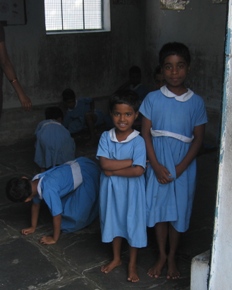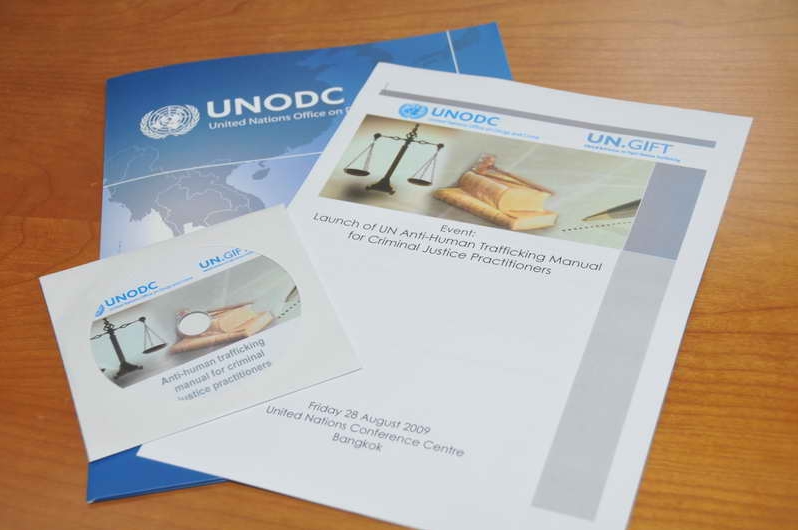Prevention of Human Trafficking
Nature and Scope

|
sp |
Human trafficking threatens human security and human development of any country. It has an economic angle as the majority of women and men who are trafficked are economically vulnerable. It has a health angle, as trafficked women and children are most at risk of HIV infection and other sexually transmitted diseases. It is also a social and a gender problem, as unequal power relations in society makes them more vulnerable to human trafficking. Lastly, it is a human rights issue, as its victims are stripped of their rights and lack any access to redress for the crimes committed against them. As an organized crime, globally, human trafficking is an estimated US$ 32 billion illegal industry and third to illegal drugs and arms smuggling. In South Asia, human trafficking is often referred to as one of the fastest growing transnational organized crimes. Over 150,000 people are trafficked within South Asia every year for sex work, labour, forced marriages, organ trade and it is often the very economic state and conditions that contribute to the vulnerabilities of young people, women and children. |
Countries in South Asia serve as prominent origin, transit and destination countries for women, children and men being trafficked. In South Asia, the largest numbers of women trafficked are within or from the region, and child trafficking is a major concern. Most of the trafficking takes place for commercial sexual exploitation where women are being forced into unprotected sexual acts with multiple partners. In addition there has been a rise in demand for domestic help at a time when human labour is becoming expensive. For this reason families, particularly in the urban centres, seek cheaper labour supply and villagers often willingly turn their children over to middlemen who promise a better life in the cities.
UNODC's response to human trafficking in South Asia

|
sp |
The adoption in 2000 by the United Nations General Assembly of the Protocol to Prevent, Suppress and Punish Trafficking In Persons, Especially Women and Children marked a significant milestone in international efforts to stop the trade in people. The UN Trafficking Protocol is the key international instrument combating human trafficking, supplementing the United Nations Convention against Transnational Organized Crime (UNTOC). Together, the Organized Crime Convention and the Trafficking Protocol create an international legal framework and provide the basis for Member State cooperation to combat human trafficking. |
UNODC in South Asia provides technical assistance and financial assistance through various projects for prevention, prosecution and protection to curb human trafficking in the region.
One of UNODC's many initiatives is to rehabilitate the girls and boys from the shelter care homes of the juvenile home complex in Calicut, Kerala. With the Government of Kerala UNODC supports a victim care support initiative for children in after care homes, part of UNODC's regional victim support project. UNODC has trained 600 caregivers in shelter care homes in 9 Indian states of India: Andhra Pradesh, Bihar, Goa, Karnataka, Kerala, Maharashtra, Tamil Nadu, Uttar Pradesh and West Bengal. Additionally it reached out to more than 1200 children in shelter homes and provided career counselling services to 200 children.
It also provides training to law enforcement agencies in the region to strengthen their technical capacity and investigation skills to address human trafficking effectively. UNODC has so far trained 13,490 law enforcement officials in the region, It has also established 9 anti human trafficking units in districts of India, developed 12 publications on training, standard operating procedures and information education communication (IEC) materials. Through these interventions it reached out to more than 1200 women in distress and provided options for livelihoods to 920 women.
UNODC and UNIFEM are collaborating on the 'Legal and policy review of response to human trafficking in India, Nepal, Bangladesh and Sri Lanka' to prepare a comprehensive matrix of gaps in legislative, policies and institutional responses to human trafficking. The findings will help the four countries move closer to the provisions of the UNTOC and the Trafficking in Persons Protocol.
Under the vision of increased joint UN cooperation, UNIFEM and UNODC have committed themselves to address human trafficking issues collaboratively by thinking, planning and implementing programmes together. A Memorandum of Understanding (MoU) was signed on 9 July 2009 between UNIFEM and UNODC with regard to the South Asian countries of Bangladesh Bhutan, India Nepal, Maldives and Sri Lanka.
UNODC also works closely with the tourism industry in India to evolve a code of conduct for tourism service providers to prevent trafficking and exploitation of children. The Ministry of Tourism, Government of India recently launched a sensitization and awareness campaign on 'Safe and Honourable Tourism' of which UNODC was a part. As a next step, UNODC will partner with the Ministry of Tourism in India to launch a prevention campaign coinciding with the Commonwealth Games to be held in October 2010, New Delhi, India.
The Convention and its protocols provide universally accepted definitions of what "transnational organized crime", "trafficking in human beings" and "smuggling of migrants" mean, and define measures that Governments should take to address these forms of organized crime comprehensively from penalization as a serious crime, prosecution, protection of the victims and prevention. With regard to the prosecution of these crimes, international cooperation measures such as extradition, mutual legal assistance and confiscation of assets are of special importance.
In this context, UNODC in association with ATSEC India (Action Against Trafficking and Sexual Exploitation of Children) a network of NGOs working on prevention of human trafficking organized for the first time in South Asia a three-day regional workshop on "International Cooperation in Trafficking in Persons/Smuggling of Migrants Cases" in Kolkata, India from 6 to 8 March 2010. The workshop brought together 27 officers and representatives from the executive and the judiciary power from Bangladesh, Bhutan, India, Maldives, Nepal and Sri Lanka, including police officers, prosecutors, judges and senior government officials, representatives from the International Justice Mission, International Organization for Migration (IOM), UNIFEM, ATSEC and UNODC experts in legal and criminal justice matters.